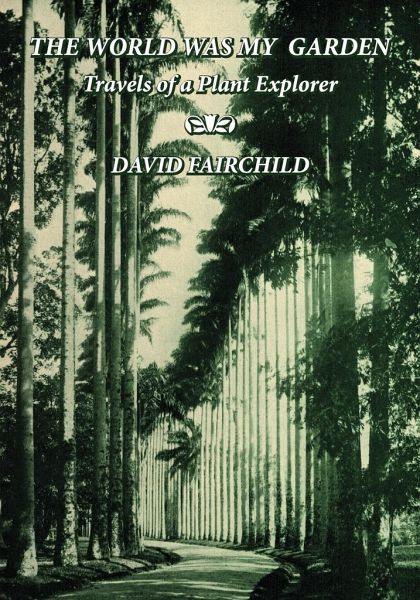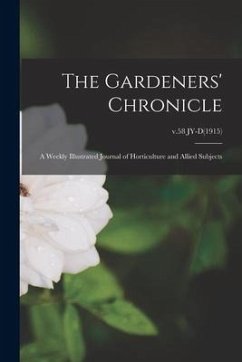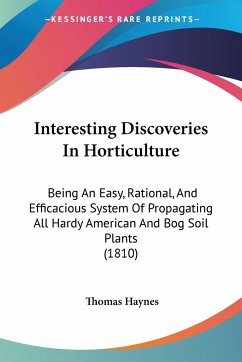
The World was My Garden
Travels of a Plant Explorer
Versandkostenfrei!
Versandfertig in 1-2 Wochen
59,99 €
inkl. MwSt.

PAYBACK Punkte
30 °P sammeln!
David Fairchild wrote this book to describe his extensive world travels and his work introducing new plant species to the United States. In addition to sharing his legendary tropical botanical expertise, Fairchild provided graphic accounts of native cultures he was able to see before their modernization. He was an accomplished photographer and illustrated the book himself. This is his personal story of his experiences, traveling endlessly, absorbing information about plant life and sending back cuttings to experiment with, investigating plant disease, and so on. His training and experiences in...
David Fairchild wrote this book to describe his extensive world travels and his work introducing new plant species to the United States. In addition to sharing his legendary tropical botanical expertise, Fairchild provided graphic accounts of native cultures he was able to see before their modernization. He was an accomplished photographer and illustrated the book himself. This is his personal story of his experiences, traveling endlessly, absorbing information about plant life and sending back cuttings to experiment with, investigating plant disease, and so on. His training and experiences in European laboratories and his travels brought him into contact with most of the people in his own field, and this narrative is full of human interest material, and anecdote. Fairchild worked for the USDA in its infancy, was one of the first to investigate microbial causes of plant disease, and traveled the world documenting agricultural practices. He was a humorous and modest man who lead a fascinating life. David Grandison Fairchild (April 7, 1869 - August 6, 1954) was an American botanist and plant explorer. Fairchild was responsible for the introduction of more than 200,000 exotic plants and varieties of established crops into the United States, including soybeans, pistachios, mangos, nectarines, dates, bamboos, and flowering cherries. Certain varieties of wheat, cotton, and rice became especially economically important.












![Horticulture in the North [microform]: a Guide to Fruit Growing in the Prairie Provinces of Canada: With Chapters on the Selection and Cultivation of Cover Horticulture in the North [microform]: a Guide to Fruit Growing in the Prairie Provinces of Canada: With Chapters on the Selection and Cultivation of](https://bilder.buecher.de/produkte/66/66194/66194578n.jpg)

